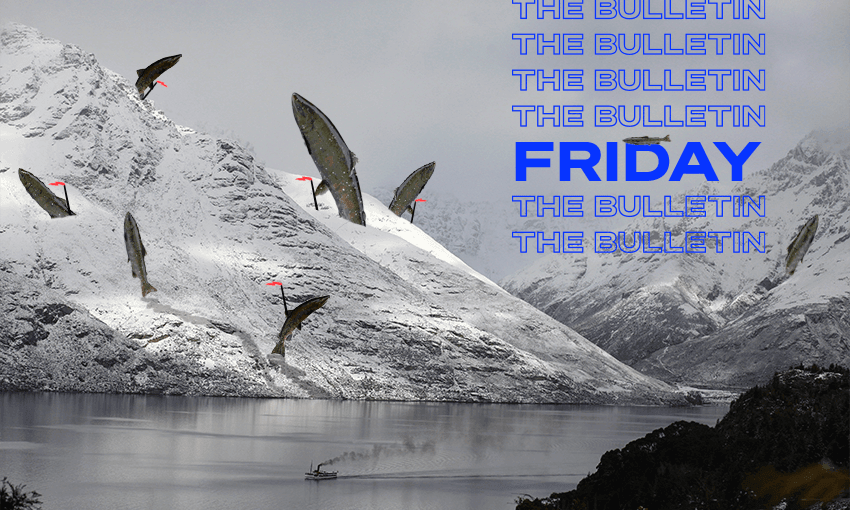Ski field failures, agricultural emissions, marine heatwaves and land-based fish farming. This week, the idea of an isolated climate change news section became entirely redundant, writes Anna Rawhiti-Connell in The Bulletin.
Fact-checking the responses to the agricultural emissions plan
Composing this in my head yesterday, I had “It’s been a big week of climate change news” kicking around as an opener, but the through-line of today’s stories illustrate how redundant that sounds. Four stories this week might poetically be divided into stories of the land, the sea and the sky and popped under a climate news header, but combined they cut across politics, business, the economy, farming and sports. On Tuesday, we got the government’s announcement about the proposed agricultural emissions scheme. On that, I think it’s worth pointing to Stuff’s Olivia Wannan’s fact checking of some of the statements made in response.
The first big business casualty of climate change?
Ruapehu Alpine Lifts (RAL) being put into voluntary administration might be the country’s first big business casualty of climate change. As is often the case, the road to this one has a scientist standing on the side of it trying to inform us before it happened. As Newsroom’s Andrew Bevin reports, climate scientist James Renwick wrote a report for the ski industry body two decades ago looking at the question of how much longer ski fields will be able to remain viable. RAL’s situation is not wholly the result of climate change but the likelihood of increasingly bad ski seasons and needing to rely on artificial snow for winter sports and recreation is a reality we’re facing a bit earlier than predicted. Artificial snow was used for the Beijing Olympics this year and this New York Times piece outlines the lengths China had to go to to make enough of it.
Severe marine heatwaves are on the rise
Andrew Bevin’s story helpfully made the jump to the next story for me by mentioning the death and dumping of 1,300 tonnes of salmon in Marlborough after a marine heat wave. Yesterday we had a new report published on the health of our marine environment. In short, not at all good. The Herald’s Jamie Morton has a thorough run down. Severe marine heatwaves, as well as hotter, more acidic waters are on the rise. Stuff’s Anna Whyte spoke to people who believe we can turn the situation around. I’ve covered the impact of warming oceans on New Zealand’s salmon farms before. People now send me salmon news which is how I found this next story from Doug Sail in the Timaru Herald yesterday.
Government backs land-based salmon farm idea
Sail reports on the potential for sustainable land-based salmon farming. This is where we potentially end with some optimism. New Zealand’s first such farm could be built near Twizel. Yesterday the government announced $6.7m in backing for the further development of the prototype. I am very aware that reading climate change news is often a lot for people. It’s a lot for me. But it’s not really a subcategory any more and some of these stories have been the biggest, and most consequential this week. It’s why, if you’ll forgive the plug, I always enjoy reading our environment newsletter, Future Proof, edited by Ellen Rykers. Rykers has a knack for finding the news that suggests people are very capable of acting with the future in mind.


